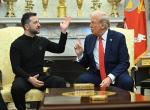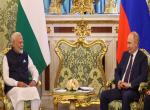Introduction
Recently Turkic Council held its Eighth Summit in Istanbul, Turkey. Some significant developments have taken place during this Summit. The name of the Turkic Council was changed to the Organization of Turkic States. Secondly, Turkmenistan joined this organization as an observer, which is considered to be a significant development. Turkmenistan follows a policy of neutrality and restrains itself from being a member of any regional organization. However, Ashgabat joining Turkic Council as an observer is significant for regional cooperation in Central Asia.
The Summit’s main agenda was ‘Green Technologies and Smart Cities in the Digital Age.’ The Summit was hosted by Turkish President Recep Tayyip Erdogan on an island in the Marmara Sea outside Istanbul. It was attended by Azerbaijani President Ilham Aliyev, Kazakh President Kassym Jomart Tokayev, Kyrgyz President Sadyr Zhaparov, and Uzbek President Shawkat Mirziyoyev. Prime Minister of Hungary, Viktor Orban, and Turkmen President Gurbanguly Berdimuhamedov attended the conference as observers.[1]
Following the disintegration of the Soviet Union in 1991, five Turkic-speaking countries, i.e., Azerbaijan, Kazakhstan, Kyrgyzstan, Turkmenistan, and Uzbekistan, became independent and sovereign states. Turkey was one of the first countries to recognize these independent republics. Turkey’s main agenda was to gain influence within these Turkic nations and fill the strategic void resulting from the Soviet Union’s collapse. The proposal for a forum for Turkic-speaking states was initially envisioned in the early 1990s, based on shared historical origins as well as ethnic and linguistic affinities. The First Summit of the Heads of Turkic Speaking States, held in Ankara in 1992, brought together the presidents of six Turkic-speaking countries: Azerbaijan, Kazakhstan, Kyrgyzstan, Turkey, Turkmenistan, and Uzbekistan. A succession of additional summits followed.
At the Seventh Summit held in Baku in 2019, Nursultan Nazarbayev, Kazakhstan’s first President and honorary President of the Turkic Council, proposed developing a ‘Turkic World Vision 2040’ for the Turkic Council, demonstrating the importance of creating a document that includes long-term goals and strategies for achieving them. The creation of this document progressed in accordance with Nazarbayev’s recommendation.[2] The main goals of the 2040 vision are stronger foreign policy coordination, security cooperation, signing free trade agreements, transportation border opening, and strong collaboration between members’ nations.[3] This document was adopted at this Summit.
Why has Turkic Council Become Strategically significant?
With a modest record of successes in the last two to three years, the Turkic Council has attained a critical milestone. It has demonstrated its capacity to successfully carry out its directives, which were entrusted to it by the Agreement signed in Nakhchivan by the founding member nations; Azerbaijan, Kazakhstan, Kyrgyzstan, and Turkey.[4] The Turkic Council, which welcomed Hungary as an observer in 2018 and Uzbekistan as a full member in 2019, has now included Turkmenistan into Turkic cooperation at the Istanbul summit. The fact that almost 15 countries have requested for observer status at the Turkic Council demonstrates the level of interest and significance it has achieved. As a consequence of the Turkic Council’s active approach as an international organisation, the Turkic world is growing stronger in regional and international affairs.[5]
A Tool of Turkey’s Eurasian Strategy
In the early years of independence of various Turkic Central Asian republics; Kazakhstan, Kyrgyzstan, Turkmenistan, and Uzbekistan – Turkey became one of the region’s main investors, creating infrastructure and investing in commerce and business. Since then, it gradually attained a favourable position in the strategic environment of the Eurasian region. However, the proximate cause for Turkey’s advanced position in the region is Azerbaijan’s triumph over Armenia in the conflict between the two South Caucasian countries. It was due to Turkey’s military assistance, Azerbaijan could recapture the land it had lost to Armenia two decades earlier.[6] The Central Asian countries may also see it as an opportunity to get Istanbul’s assistance in sustaining their security apparatus concerning recent developments in Afghanistan.
In the Eighth Summit of the Organization of Turkic States, Azerbaijani President Ilham Aliyev received the ‘Supreme Order of the Turkic World’ for the victory in the Nagorno-Karabakh war. In response, Aliyev praised Turkish President Reccep Tayyip Erdogan, adding that Turkey and the Turkish world had gained momentum across the world due to Erdogan’s leadership.[7] Turkish President Erdogan has been very ambitious concerning this organisation. And this may be due to the stalling of his drive for Muslim world leadership. Therefore, concentrating on Turkic-speaking states or pan-Turkism presents a more plausible, durable, and lucrative option to enhance his leadership authority.
Success of Uzbekistan’s diplomacy
Uzbekistan’s diplomacy has been fierce and speedy in the post-Karimov period. The Central Asian region was the priority area of President Mirziyoyev’s policy. Due to his efforts, a positive wave of regional cooperation is evident in the region. Trade, economy, border settlement, connectivity, energy transport are positive outcomes of regional integration in Central Asia.
Uzbekistan joined the Turkic council in 2019 as a full member. Considering the fact that Tashkent is already playing a constructive role in enhancing multilateral cooperation in Central Asia, its role in increasing cooperation between the Turkic countries is also crucial. Turkey’s relations with Uzbekistan have also been elevated during President Mirziyoyev’s regime. Tashkent also sees Turkey as an alternative to the Russian and Chinese influence. Conversely, Istanbul considers Uzbekistan a significant aspect of its Eurasian policy. This conversion of interests may go in favour of enhancing the influence of the Turkic Council as an international organization.
Economic Cooperation
The geostrategic location of some of the member countries is very crucial. Turkey, Kazakhstan, and Azerbaijan are geographically placed at the crossroads of East and West. These countries also possess an abundance of natural resources. Economic cooperation was highly emphasized during this Summit. The council highlighted the need for taking urgent measures to enhance mutual trade and investment. The focus was also on creating favourable conditions for economic activities between the member countries.[8] Turkey, Azerbaijan, Kazakhstan, and Uzbekistan can play a significant role in this regard.
Energy Diplomacy of Turkmenistan
Turkmenistan has joined this organization as an observer. It will revamp Turkmenistan-Azerbaijan relations and energy linkages. With the signing of the ‘Convention on the Legal Status of the Caspian Sea’ in the Kazakh city of Aktau in August 2018,[9] the prospects of Gas exports from Turkmenistan to Europe via Azerbaijan have increased. It has also given a push to Trans-Caspian Gas Pipeline. On January 21, 2021, Azerbaijan and Turkmenistan signed a Memorandum of Understanding on joint exploration and development of hydrocarbon resources of the ‘Dostlug’ (Friendship) field in the Caspian Sea.[10] Turkmenistan is heavily dependent on China for its natural gas exports. Facilitating this alternative route to export gas will be strategically beneficial for Ashgabat’s energy diplomacy.
Challenges for Russia
Russia’s relations with Turkey have been complicated in the recent past. With the victory of Azerbaijan in the Nagorno Karabakh war with the help of Turkey, the bilateral dynamics have further altered between Moscow and Istanbul. China has already challenged Russia’s position in post-Soviet space. Turkey’s diplomacy in the Eurasian region has been revitalized in recent times, which presents a direct challenge to Russia’s position. Although in the absence of any alternative, Russia cooperated with China in the Eurasian region. But there are fewer possibilities that Moscow will repeat the past mistakes when it comes to increasing Turkish Influence in Central Asia.
References
[1] ‘Turkic Council summit begins in Istanbul, focusing on green technologies, smart cities’, ANI News, 12 November 2021. https://www.aninews.in/news/world/asia/turkic-council-summit-begins-in-istanbul-focusing-on-green-technologies-smart-cities20211112170412/
[2] ‘The Future Of The Turkic Council Commentary No : 2021 / 20,’ Centre for Eurasian Studies, 24 March 2021. https://avim.org.tr/en/Yorum/THE-FUTURE-OF-THE-TURKIC-COUNCIL
[3] ‘Turkic Council revamps image, aims to boost ties through transformation,’ The Daily Sabah, 11 November 2021. https://www.dailysabah.com/politics/diplomacy/turkic-council-revamps-image-aims-to-boost-ties-through-transformation
[4] ‘A New Beginning for Turkic world: Op-ed’, Hurriyat daily News, 11 November 2021. https://www.hurriyetdailynews.com/a-new-beginning-for-turkic-world-op-ed-169278
[5]Ibid.
[6] ‘Turkey challenges Russia, pushes into Central Asia with Organisation of Turkic States’, Siasat Daily, 24, November 2021. https://www.siasat.com/turkey-challenges-russia-pushes-into-central-asia-with-organisation-of-turkic-states-2230165/
[7]Ibid.
[8] ‘Turkic Council’s name changed to Organization of Turkic States’, Hurriyat Daily News, 13 November 2021. https://www.hurriyetdailynews.com/turkic-councils-name-changed-to-organization-of-turkic-states-169333
[9] ‘Caspian Sea: Five countries sign deal to end dispute’, BBC News, 12 August 2018. https://www.bbc.com/news/world-45162282
[10]Jehun Aliyev, “Azerbaijan, Turkmenistan sign deal on Caspian hydrocarbon field”, Anadolu Agency, January 22, 2021. https://www.aa.com.tr/en/economy/azerbaijan-turkmenistan-sign-deal-on-caspian-hydrocarbon-field/2118835
(The paper is the author’s individual scholastic articulation. The author certifies that the article/paper is original in content, unpublished and it has not been submitted for publication/web upload elsewhere, and that the facts and figures quoted are duly referenced, as needed, and are believed to be correct). (The paper does not necessarily represent the organisational stance... More >>
Image Source: https://idsb.tmgrup.com.tr/ly/uploads/images/2021/11/12/159106.jpg











Post new comment